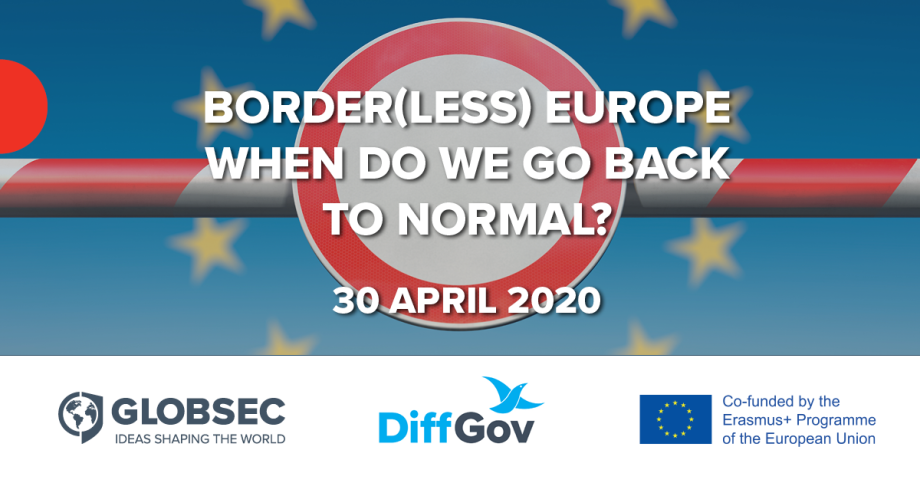Summary of DIFF GOV online CITY TALK in Bratislava 2020 (English)

For the Slovak version, please click here / Pre verziu v slovenčine kliknite tu
The global pandemic caused by the spread of COVID-19 is changing our daily lives to a considerable extent. Europe as a proudly border-free continent was suddenly paralysed as the borders controls and travel bans have been introduced in a pervasive manner with just one simple aim – to save as many lives as it is possible. Border controls and travel bans are just temporary measures, but the key is whether they will have any impact on the Schengen zone in the future.
What are the lessons learnt from the crisis? How to make sure that temporary provisions do not become permanent? How to make the Schengen zone more sustainable in the future? Will this crisis have any impact on the European Union's position on migration and asylum policy? What is this idea of a new “Smart Schengen” that can be possibly introduced after the crisis?
These were some of the questions raised during GLOBSEC’s online webinar ‘Border(less) Europe – When we go back to normal?’ The discussion forms a part of a bigger international project called ‘DIFF GOV: European Governance: Potential of Differentiated Cooperation’ that is co-funded by Erasmus+ Programme of the European Union.
The discussion hosted very interesting speakers that gave their professional Insights on this very important and at the same time interesting topic. Speakers included the following: Lucas Mandl, Member of European Parliament; Alena Kudzko, Director, GLOBSEC Policy Institute; Tom Snels, Deputy Head of Cabinet of Commissioner Johansson for Home Affairs, Catharina Sørensen, Deputy Director, Think Tank EUROPA and Michal Šimečka, Member of European Parliament.
On the occasion of the event, Alena Kudzko, Director of GLOBSEC Policy Institute presented the DIFF GOV Policy Paper “Nothing but Schengen Matters: Updating Schengen: Political and Technocratic Patches”, published by GLOBSEC, April 2020.